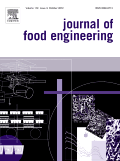
JOURNAL OF FOOD ENGINEERING
Scope & Guideline
Driving progress in food production and processing technologies.
Introduction
Aims and Scopes
- Food Processing Technologies:
Research on the development and optimization of various food processing techniques such as drying, extraction, and preservation methods, including the use of innovative technologies like microwave, ultrasound, and ohmic heating. - Quality and Safety Assessment:
Studies assessing the physicochemical properties, safety, and sensory qualities of food products, including methods for detecting foodborne pathogens and contaminants. - Sustainable Practices:
Exploration of eco-friendly and sustainable practices in food production and processing, aiming to reduce waste and improve resource efficiency in the agro-food industry. - Functional and Nutritional Improvements:
Research focused on enhancing the nutritional profiles and functional properties of food products through fortification, novel ingredients, and innovative processing techniques. - Food Packaging and Preservation:
Investigations into new materials and technologies for food packaging, including active and intelligent packaging solutions aimed at extending shelf life and maintaining food quality.
Trending and Emerging
- Nanotechnology in Food Applications:
An increasing number of studies are focusing on nanotechnology for food packaging, preservation, and detection of food quality, highlighting its potential to revolutionize food engineering practices. - Plant-Based and Functional Foods:
A noticeable trend towards investigating plant-based ingredients and functional foods, driven by consumer interest in health and nutrition, is evident in recent publications. - Smart and Intelligent Food Systems:
Emerging research on smart food systems utilizing IoT and data analytics for monitoring food quality, safety, and processing efficiency is gaining traction in the journal. - Sustainable Food Innovations:
Research targeting sustainability, including waste reduction strategies, resource efficiency, and eco-friendly processing methods, is increasingly prominent, aligning with global sustainability goals. - Advanced Food Microbiology Techniques:
The integration of advanced microbiological techniques for studying foodborne pathogens and fermentation processes is on the rise, reflecting a growing emphasis on food safety and quality.
Declining or Waning
- Traditional Food Processing Methods:
There is a noticeable decrease in research focusing on conventional food processing methods as researchers increasingly explore more advanced and efficient technologies. - Food Adulteration Detection:
While detection methods for food adulteration were once a major focus, recent publications suggest a waning interest in this area, possibly due to advancements in more robust detection technologies and methodologies. - Simple Sensory Evaluation Techniques:
Research employing basic sensory evaluation techniques is becoming less common, with a shift towards more sophisticated and comprehensive sensory analysis methods that incorporate advanced statistical and analytical tools.
Similar Journals
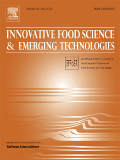
Innovative Food Science & Emerging Technologies
Transforming Food Science Through Cutting-Edge ResearchWelcome to Innovative Food Science & Emerging Technologies, a premier journal published by ELSEVIER SCI LTD that serves as a vital platform for researchers and professionals dedicated to the rapidly evolving field of food science. With an impressive Impact Factor and a position in the Q1 category across notable disciplines including Chemistry, Food Science, and Industrial and Manufacturing Engineering, this journal ranks among the top tier within its fields, evidenced by its Scopus ranking of 20th out of 389 in Food Science, placing it in the 94th percentile. Our readers can expect to encounter cutting-edge research and innovative applications from 2000 through 2024, exploring critical themes that contribute to advancements in food technology, manufacturing processes, and sustainability practices. Although currently not an Open Access publication, we maintain a commitment to disseminating high-quality scholarship that enhances knowledge and encourages collaboration among a diverse audience. Join us in driving forward the forefront of food science research in the Netherlands and beyond.

International Food Research Journal
Nurturing Interdisciplinary Dialogue in Food StudiesThe International Food Research Journal, published by UNIV PUTRA MALAYSIA PRESS, serves as a pivotal platform for disseminating innovative research within the field of food science. With an ISSN of 1985-4668 and an E-ISSN of 2231-7546, the journal has successfully established its presence since its inception in 2007, converging its findings through 2024. This esteemed journal holds a Q3 ranking in Food Science, illustrating its valuable contributions to the field as demonstrated by its Scopus rank of 276 out of 389, placing it in the 29th percentile among its peers in Agricultural and Biological Sciences. Although it operates under a traditional publishing model, its academic integrity and focus on high-quality research ensure that it remains a vital resource for researchers, professionals, and students eager to explore advances in food technology, nutrition, and safety. By encouraging interdisciplinary collaboration and critical dialogue, the International Food Research Journal plays an essential role in shaping the future of food science research.

JOURNAL OF FOOD SCIENCE AND TECHNOLOGY-MYSORE
Pioneering Research for a Sustainable Food FutureJOURNAL OF FOOD SCIENCE AND TECHNOLOGY-MYSORE, published by SPRINGER INDIA, is a distinguished peer-reviewed journal that has been contributing to the ever-evolving field of food science since its inception in 1974. With an ISSN of 0022-1155 and E-ISSN 0975-8402, this journal holds a commendable position in the Q2 category for Food Science, as per the 2023 metrics, and ranks #58 out of 389 in Scopus's Agricultural and Biological Sciences sector, achieving an impressive 85th percentile. The journal publishes high-quality research articles, reviews, and case studies that cover a wide array of topics, from food preservation to innovative technologies in food processing. Although it is not an open-access journal, it endeavors to disseminate essential knowledge and research strategies that advance food science and benefit both industry professionals and academia. The geographical reach of the journal, alongside its rigorous editorial standards, solidifies its stature as a pivotal resource for researchers, professionals, and students dedicated to the enhancement of food science practices and technologies.
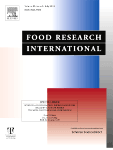
FOOD RESEARCH INTERNATIONAL
Advancing Knowledge in Food ScienceFOOD RESEARCH INTERNATIONAL is a premier academic journal published by ELSEVIER, specializing in the field of Food Science. With an impressive impact factor and ranked Q1 in the 2023 category quartiles, it stands at the forefront of research, positioned 17th out of 389 in the Scopus ranking for Agricultural and Biological Sciences, attaining a commendable 95th percentile. The journal publishes high-quality, peer-reviewed articles that cover a broad spectrum of topics, including food safety, quality control, nutrition, and biotechnology, making it an invaluable resource for academics, industry professionals, and students alike. As FOOD RESEARCH INTERNATIONAL seeks to enhance understanding and advance technologies related to food, it encourages innovative perspectives and interdisciplinary research. The journal, active from 1992 and continuing through 2024, is an essential platform for disseminating vital findings and fostering collaboration within the global food science community.
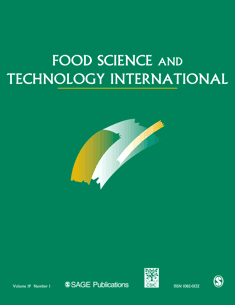
FOOD SCIENCE AND TECHNOLOGY INTERNATIONAL
Championing interdisciplinary studies in food systems.FOOD SCIENCE AND TECHNOLOGY INTERNATIONAL, published by SAGE Publications Ltd, is a premier journal in the fields of food science and technology, serving as a crucial platform for the dissemination of innovative research and practical applications from 1995 through to 2024. With an impact factor reflecting its significant standing—ranking in the Q2 quartile for Chemical Engineering, Food Science, and Industrial and Manufacturing Engineering—this journal plays an instrumental role in advancing the interdisciplinary study of food systems. Researchers, professionals, and students can access high-quality contributions that address the latest developments and trends in food technology, safety, and processing. Located in the United States, FOOD SCIENCE AND TECHNOLOGY INTERNATIONAL also boasts commendable Scopus rankings, ensuring its articles are both relevant and widely cited within the academic community. As a vital resource for anyone engaged in food science research, этот журнал fosters knowledge sharing and innovation in the ever-evolving landscape of food technology.
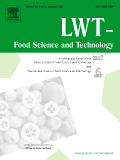
LWT-FOOD SCIENCE AND TECHNOLOGY
Exploring the science behind food quality.LWT - Food Science and Technology is a premier academic journal published by Elsevier, specializing in the multifaceted fields of food science and technology. With a distinguished presence since its inception in 1973, this journal has evolved to become a vital resource for researchers and professionals aiming to advance knowledge in food safety, preservation, processing, and sensory analysis. Currently ranked in the Q1 quartile of food science journals, it holds an impressive Scopus ranking of 22 out of 389 in the Agricultural and Biological Sciences category, placing it in the 94th percentile. While certain articles may be available via subscription, LWT is committed to disseminating cutting-edge research that enhances food quality and innovation. This journal not only serves as a critical platform for the exchange of scientific ideas but also addresses contemporary challenges in food technology, ensuring that it remains essential for scholars, industry professionals, and students alike seeking to contribute to and stay abreast of advancements in the field.

ACS Food Science & Technology
Pioneering Research for Tomorrow's Food ChallengesACS Food Science & Technology is a premier peer-reviewed journal published by the American Chemical Society (ACS) that addresses the dynamic intersections of food science, chemistry, and technology. With its E-ISSN: 2692-1944, this journal aims to disseminate innovative research and comprehensive reviews that enhance understanding in fields such as analytical chemistry, organic chemistry, and general food science. Despite the absence of an Open Access model, its position in the Q2 quartile for multiple categories in 2023 underscores its significant impact on the scholarly landscape, ensuring researchers can access high-quality research pertinent to today's food challenges. With an expanding timeline of 2021 to 2024, ACS Food Science & Technology is poised to be an essential resource for advancing the scientific community's knowledge, fostering collaboration, and bridging gaps between academia and industry.

FOOD SCIENCE AND BIOTECHNOLOGY
Exploring the Intersection of Science and Culinary ArtsFOOD SCIENCE AND BIOTECHNOLOGY, published by the Korean Society of Food Science & Technology (KOSFOST), stands as a prominent peer-reviewed journal dedicated to advancing knowledge in the fields of food science, biotechnology, and applied microbiology. With ISSN 1226-7708 and E-ISSN 2092-6456, this journal serves as a pivotal platform for disseminating high-impact research from South Korea and beyond, reflecting a robust Q2 ranking in multiple categories including Applied Microbiology and Biotechnology, Biotechnology, and Food Science as of 2023. The journal's influence is further emphasized by its positions in various Scopus ranks, where it showcases a commendable percentile ranking in Agricultural and Biological Sciences and Biochemistry. Although access options remain limited, the journal’s objectives revolve around the publication of innovative research, fostering interdisciplinary collaboration, and facilitating the exchange of ideas among a diverse community of researchers, professionals, and students. Whether you are involved in food technology, microbial biotechnology, or nutritional sciences, FOOD SCIENCE AND BIOTECHNOLOGY are instrumental in shaping the future of these critical fields, propelling advancements that enrich our understanding of food systems and health.
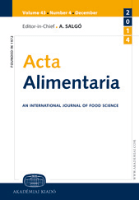
ACTA ALIMENTARIA
Innovating food chemistry and nutrition for a sustainable world.ACTA ALIMENTARIA is a renowned journal in the field of food science, published by AKADEMIAI KIADO ZRT, based in Hungary. Since its inception in 1973, it has served as a vital platform for disseminating high-quality research on food chemistry, microbiology, nutrition, and technology, contributing significantly to the advancement of knowledge in the agricultural and biological sciences. Currently classified in the Q3 quartile of the 2023 Food Science category, the journal is positioned to address pressing issues pertaining to food safety, quality, and sustainability, making it an invaluable resource for researchers, professionals, and students alike. Although it does not currently offer open access, the journal maintains a strong reputation with a readership keenly interested in the latest developments in food science. With a Scopus rank placing it in the 38th percentile of its category, ACTA ALIMENTARIA continues to be a pivotal reference for those engaged in food research and innovation.

Food Engineering Reviews
Fostering Collaboration among Scholars and Industry Experts.Food Engineering Reviews is a prestigious journal published by SPRINGER, dedicated to advancing the field of food engineering through comprehensive review articles that synthesize current research and innovative practices. With an ISSN of 1866-7910 and an E-ISSN of 1866-7929, this journal serves as a vital resource for researchers, professionals, and students interested in the intricacies of food processing, preservation, and engineering techniques. Notably, the journal holds an impressive Q1 ranking in the category of Industrial and Manufacturing Engineering as of 2023, and it is positioned in the 94th percentile within its field according to Scopus rankings, highlighting its significance within the academic community. Although it does not offer open access, the rigorous content published in the journal from its inception in 2009 through to 2024 plays a crucial role in shaping practices that promote efficiency and sustainability in food engineering. The journal aims to foster knowledge exchange among scholars and industry experts, ensuring that emerging trends and foundational research are accessible to those striving towards excellence in food technology.